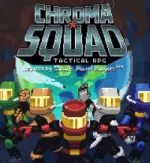Chroma Squad Review

Few things can grab your attention like a modern revival of one of your favorite childhood brands. While Chroma Squad isn’t a licensed Power Rangers game, it doesn’t shy away from acknowledging the influence; the title screen even includes a nod to Power Rangers. When this nostalgia-laden inspiration meets simplistic tactical gameplay, Behold Studios makes it easy for all sorts of players to jump in and enjoy the action, but is unable to keep that momentum.
Starting out as stunt actors on a TV program that is practically identical to Power Rangers, your team decides to start a new studio and produce a better show. The game follows the basic formula of the original Power Rangers episodes – you begin with five regular people who fight minions before transforming into a colorful cast of powerful costumed heroes to take on a boss character. Even Power Rangers’ Megazord encounters, where the boss monster grows as tall as a skyscraper, are mimicked through Chroma Squad’s Mecha fights.
Placing you in control of the five stunt actors, Chroma Squad delivers turn-based strategy at its most basic level. Each character is able to move a certain number of squares on the grid-like map based on his or her class, equipment, and special abilities. When characters land adjacent to an enemy, they can attack that enemy. Instead of attacking outright, you can put characters in a “friendship” stance, priming them for team attacks with similarly positioned squad members. This stance also opens team acrobatics, which gives nearby squad members extra reach during their turns. The mechanics are simple, but they scratch the itch of tactical RPGs and provide the satisfaction of setting forth a strategy, executing a plan, and seeing that plan succeed.
Unfortunately, while you’re provided with information prior to moving your characters, you’re given insufficient information about the how far your ranged weapons will reach following the move, and whether teammates can reach you to perform a team attack without selecting that character out of turn. With no way to undo a move within that same turn, tactical mistakes are commonplace as a result, and often don’t feel like your fault.
The levels present players with different scenarios, like fighting while members of the team are missing or diffusing a hostage situation. Once you have the basic mechanics down, you’re set for the entire game. The director provides optional special instructions – like defeating the boss with the team’s finishing attack, or defeating all of the minions before attacking the boss. I always strived to complete the instructions, since they award more fans and add welcomed diversity to the levels.
Chroma Squad’s simplicity allowed me to have fun from the very first level, but the formula wore me down over time. I developed a couple of basic strategies that worked well in nearly every level, with only a handful of challenging scenarios forcing me to switch things up. This diminishes the satisfaction initially provided by the mechanics, since the strategies feel less important when executed in repetition.
After the first few episodes, you gain access to an upgradeable Mecha for use in giant-monster battles, but the result is even more repetition. The camera changes from an isometric perspective to a side view, but the combat remains turn-based. Each time you attack as the Mecha, it increases the multiplier for your next attack within that turn, but it also decreases the chance that it will connect. Miss, and your turn ends and you’re left vulnerable to attack. You can also opt to end your turn for yourself and enter a defensive stance, bringing a risk/reward calculation with every button press. This back-and-forth was exciting at first, but like the material that inspired this game, these battles appear in nearly every episode. I started dreading each episode that featured Mecha battles, since each one feels the same.
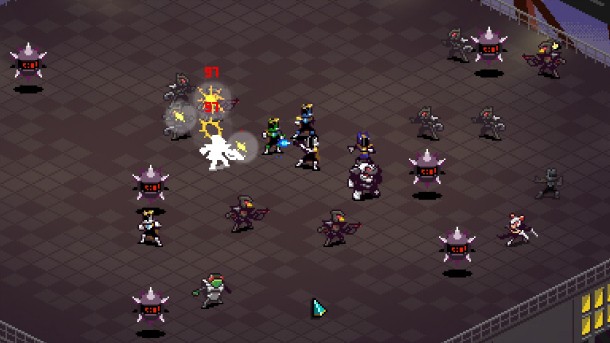
The formulaic approach is made slightly better by the fact that characters can be upgraded through skill trees and new equipment. I particularly like how you can go further down the tree and deactivate a previously chosen skill in favor of another skill on the same level, providing the progression system with a way to adjust previous decisions. The weapons and items are initially ramped up in an effective manner, but once I got deeper into the story, I had more money than I could spend and more fans than I could get rid of, making the earlier decisions and optional objectives less meaningful.
Another well-established aspect that falls off is the ability to upgrade your studio. At first, it was cool building up the vacant warehouse I started in to make it look more like a legitimate studio, but about two-thirds of the way through, that feeling of progression stops as you unlock the highest level of everything. Ways to enhance your characters still exist, but they are limited to temporary buffs based on the marketing campaigns you run. All of the customization is so well executed at the beginning that it’s a shame it falls off so sharply near the end.
The story isn’t bad, but it follows in the formulaic footsteps of its inspiration. The writing attempts to break up the combat with humor and pop culture references, and while I was entertained and charmed for a good portion of the story, the exposition for the moments leading up to battles carry on for too long, and for every pop culture reference that brought a grin to my face, another made me groan.
Although these individual flaws may seem to add up to something damning, the experience is greater than the sum of its parts. The story may be hit or miss and the mechanics overly simplistic, but the charm and nostalgia that come with the overall package makes Chroma Squad reach greater heights than a similar game with the same criticisms would.
Chroma Squad is an overall enjoyable experience that runs on nostalgia, but falls short of becoming everything it could have been. Though the progression system comes to a screeching halt during the latter portions and gameplay repetition can lead to tedium, I still found enjoyment throughout the lengthy story.
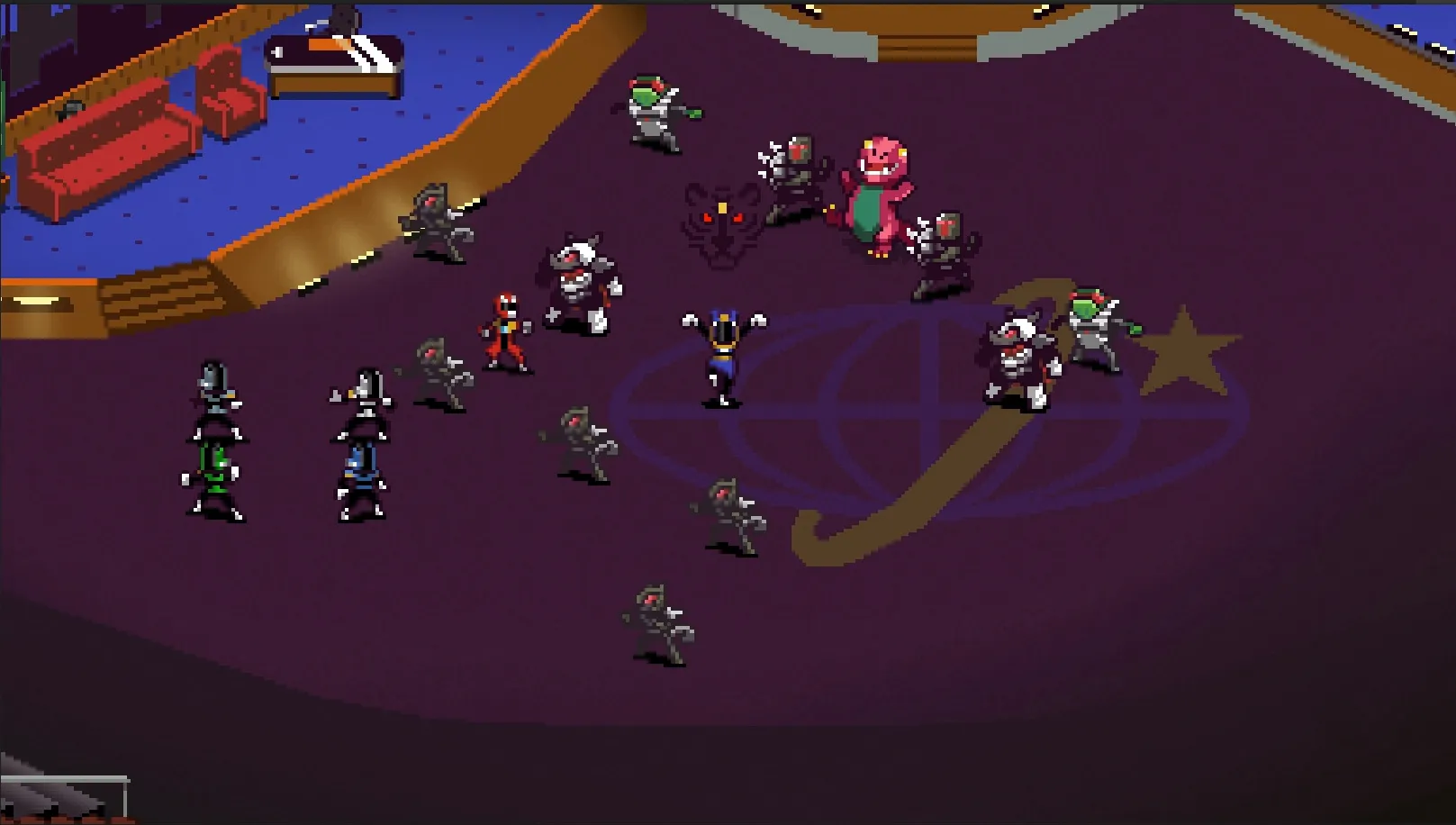
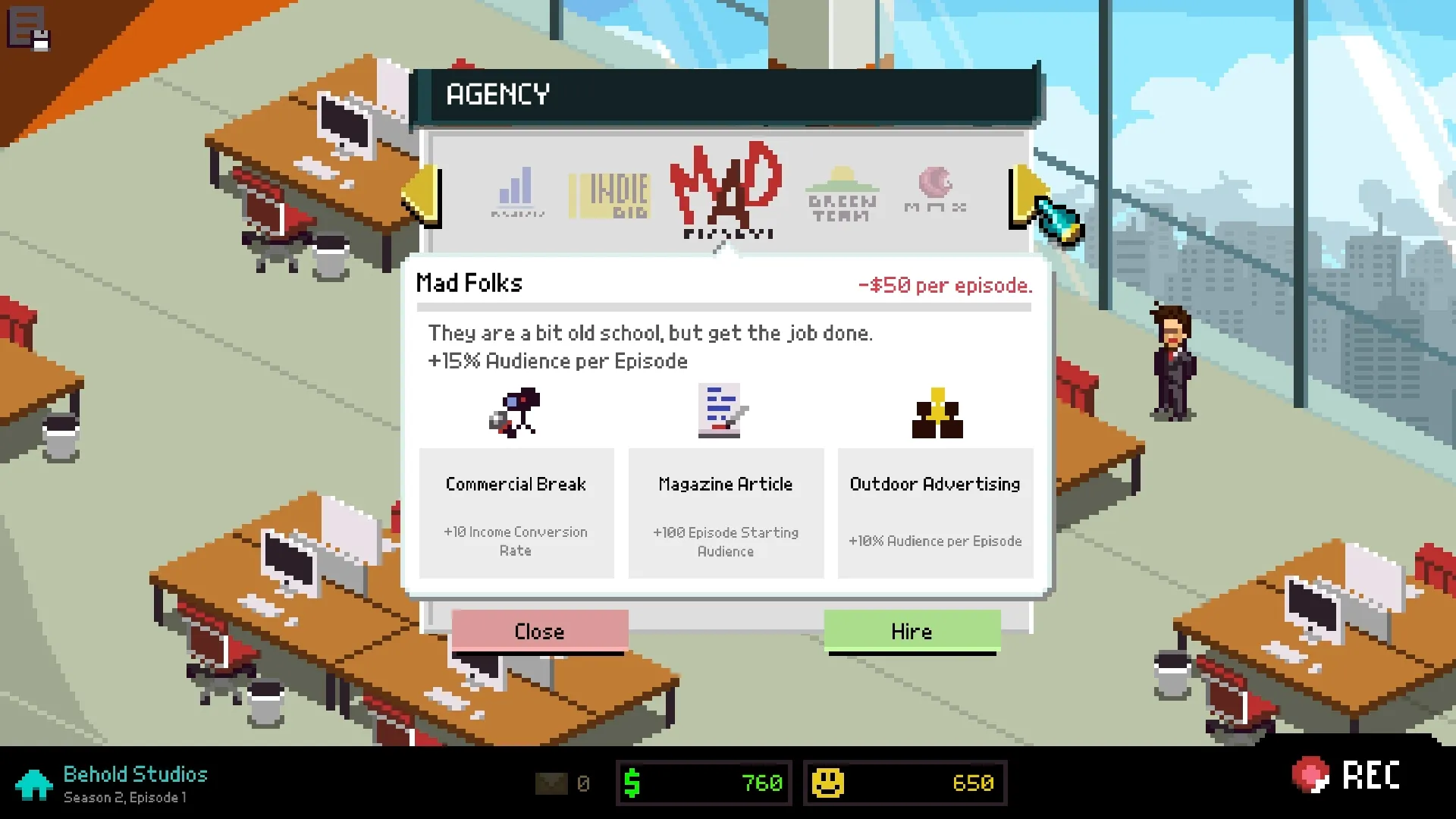
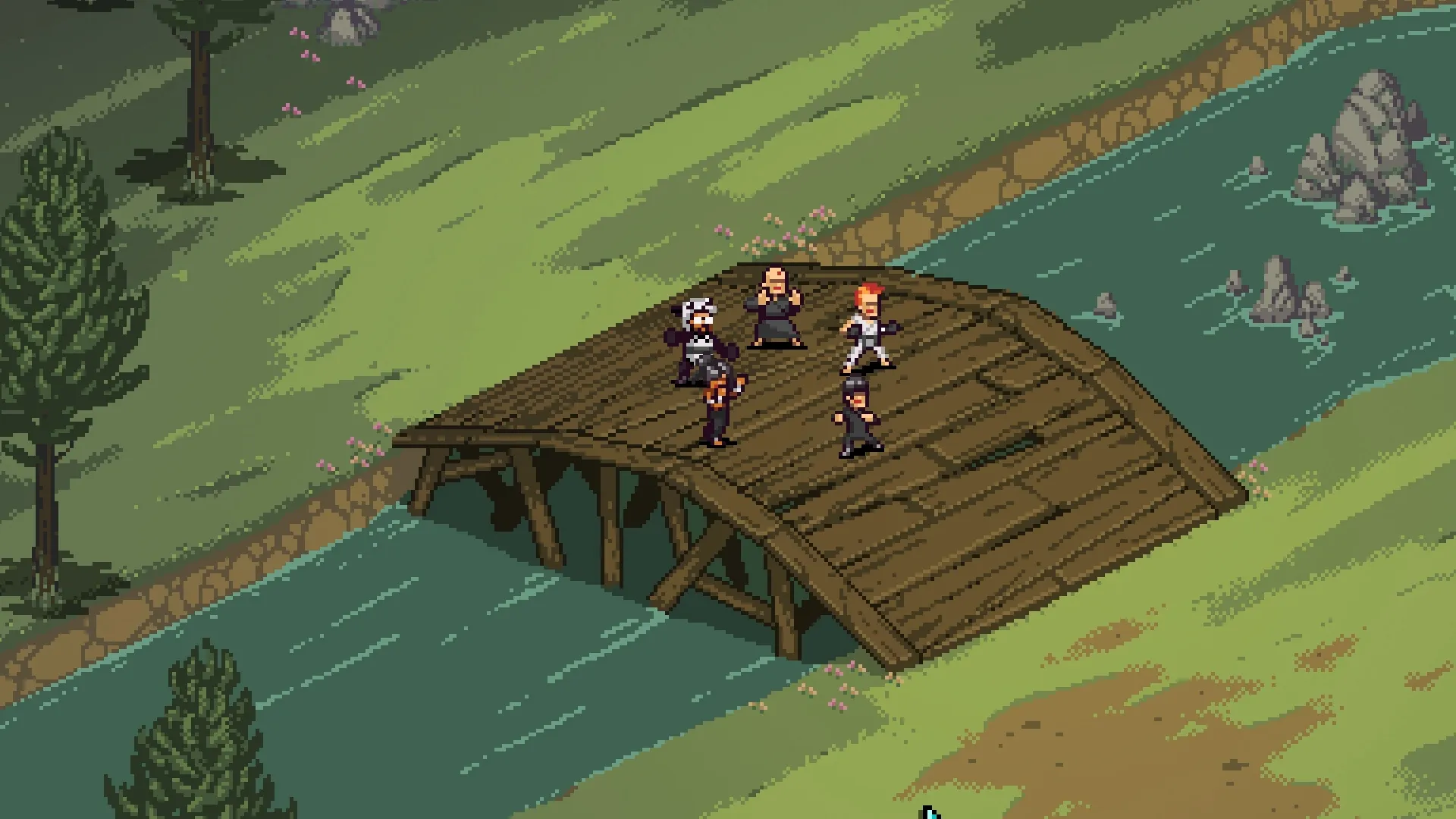
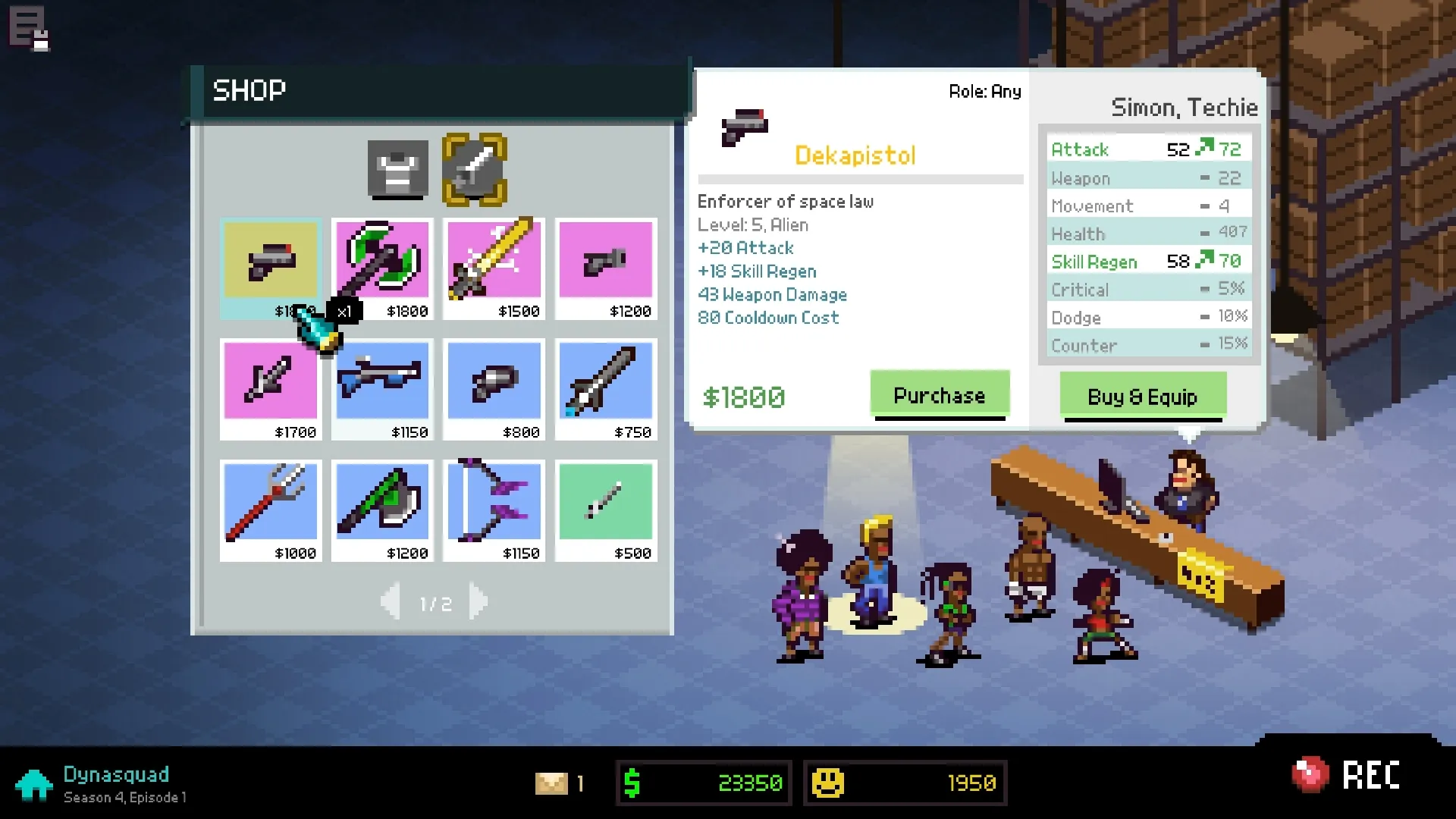
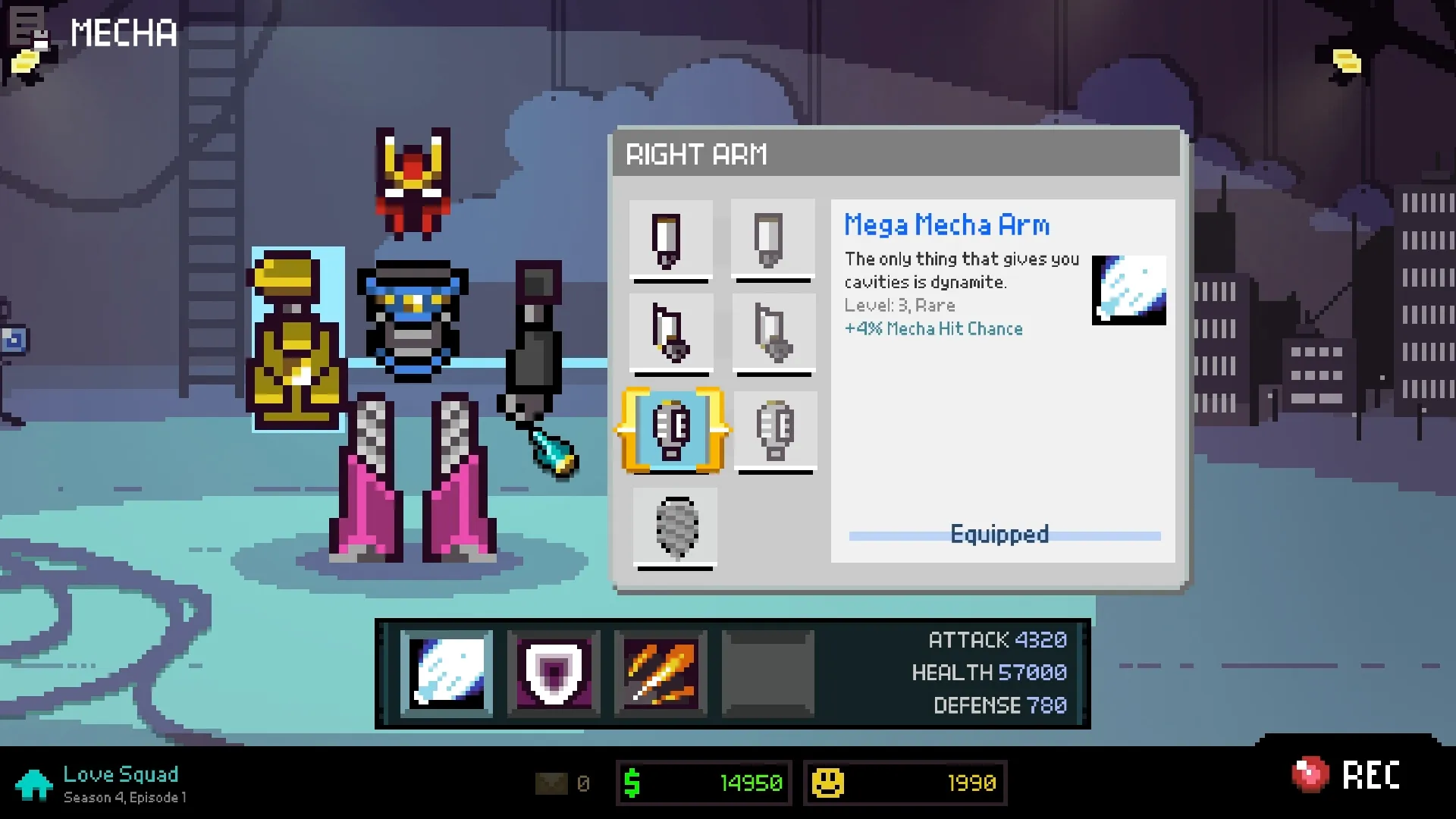
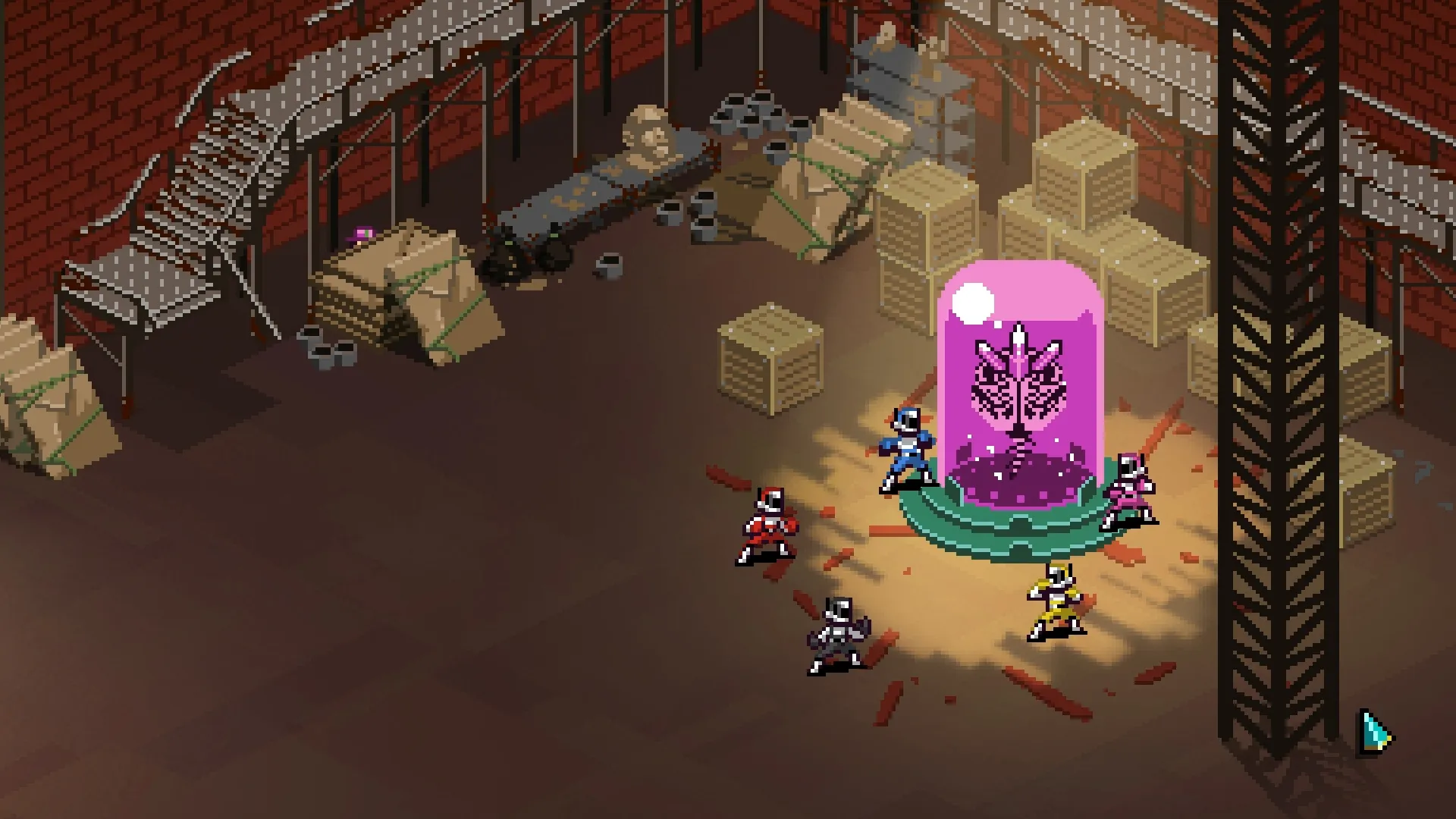
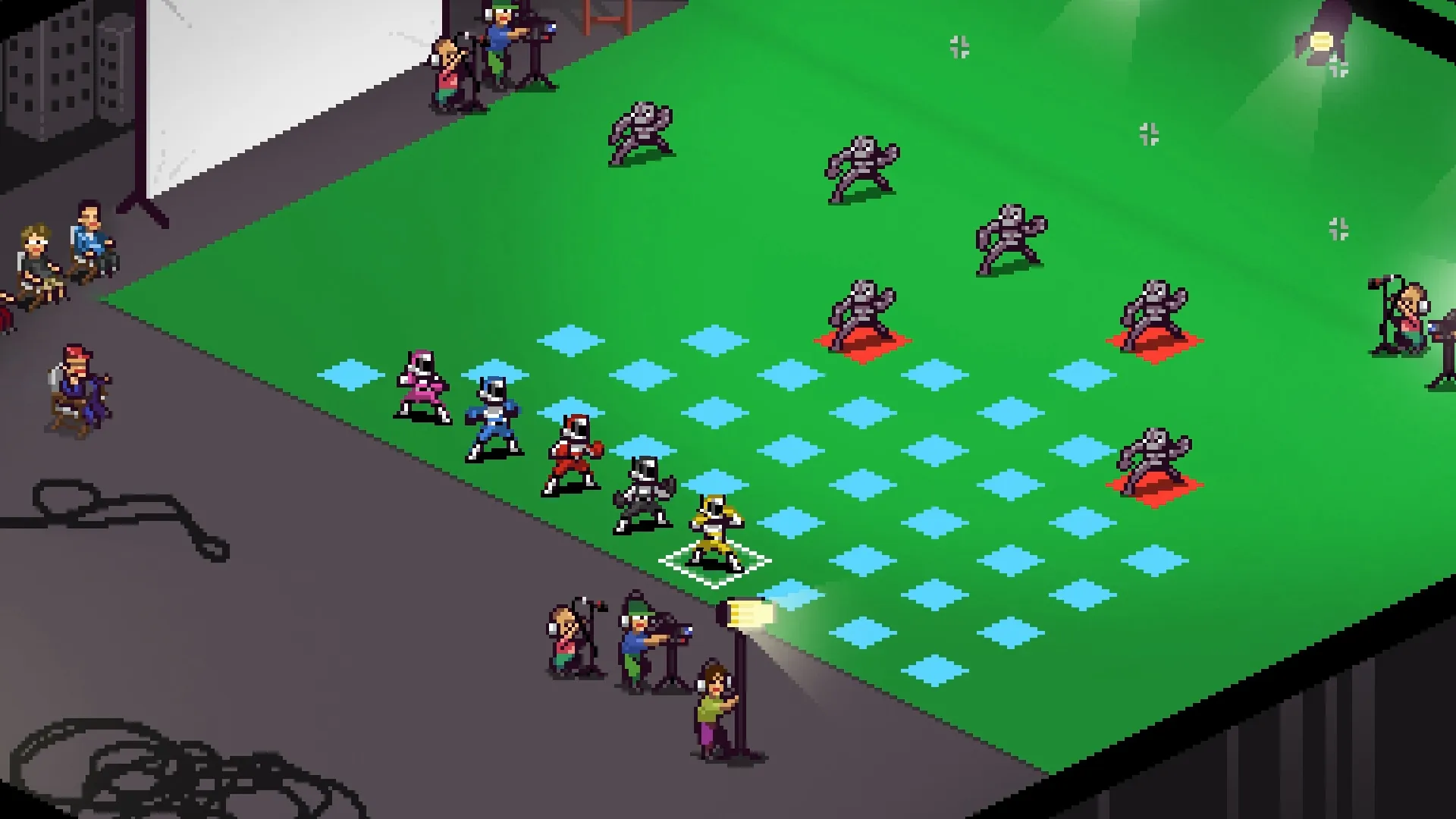
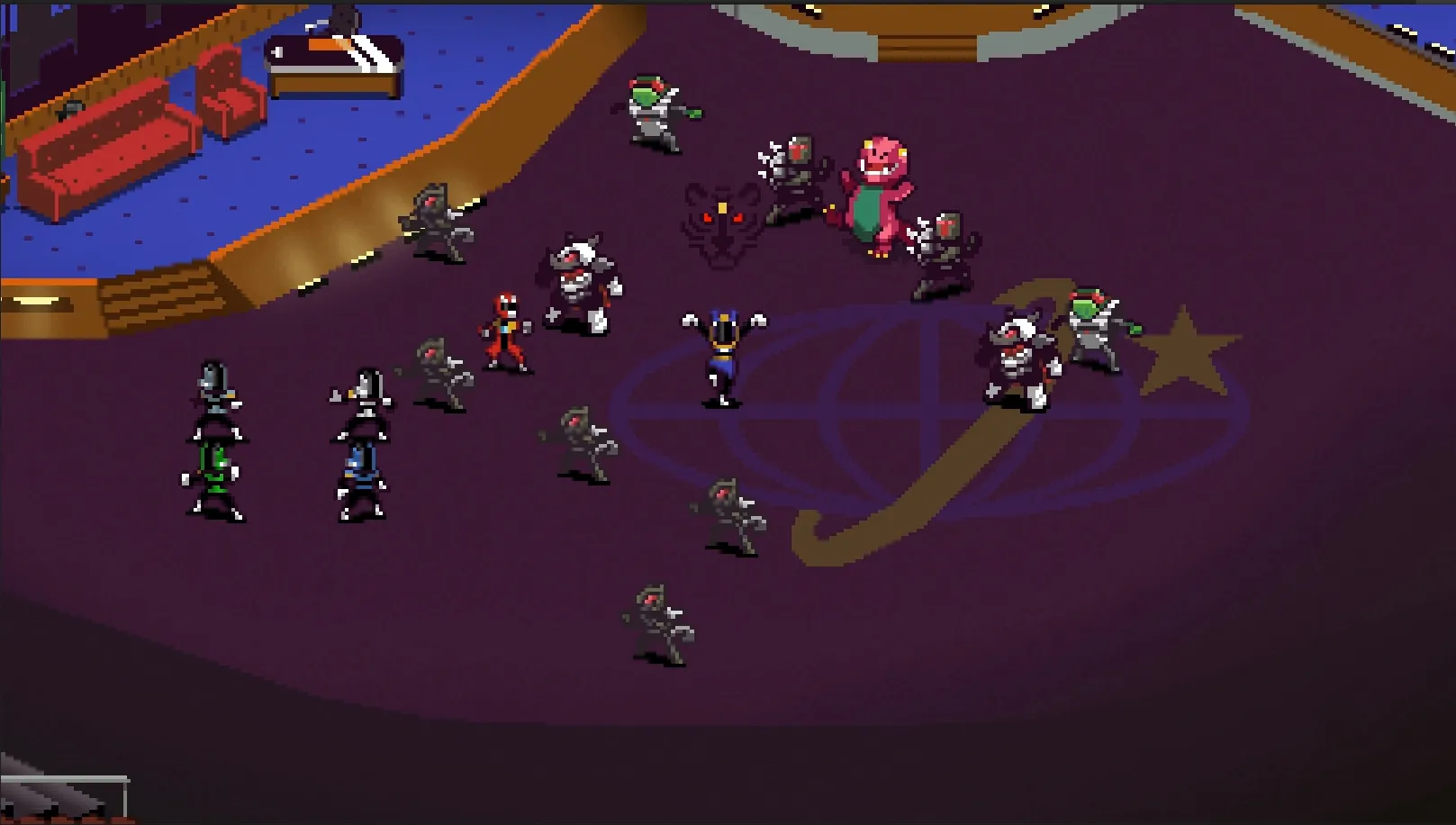
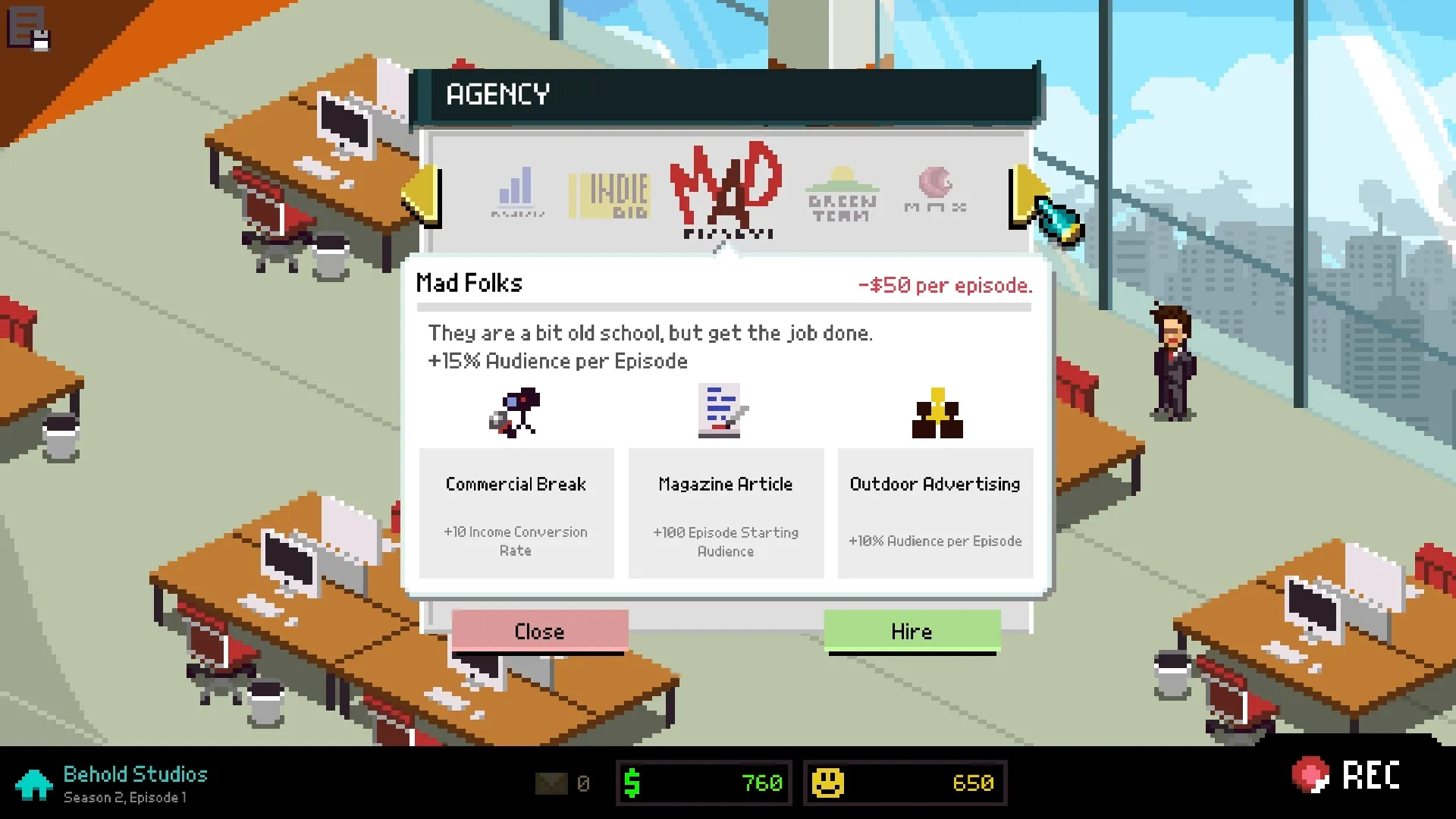
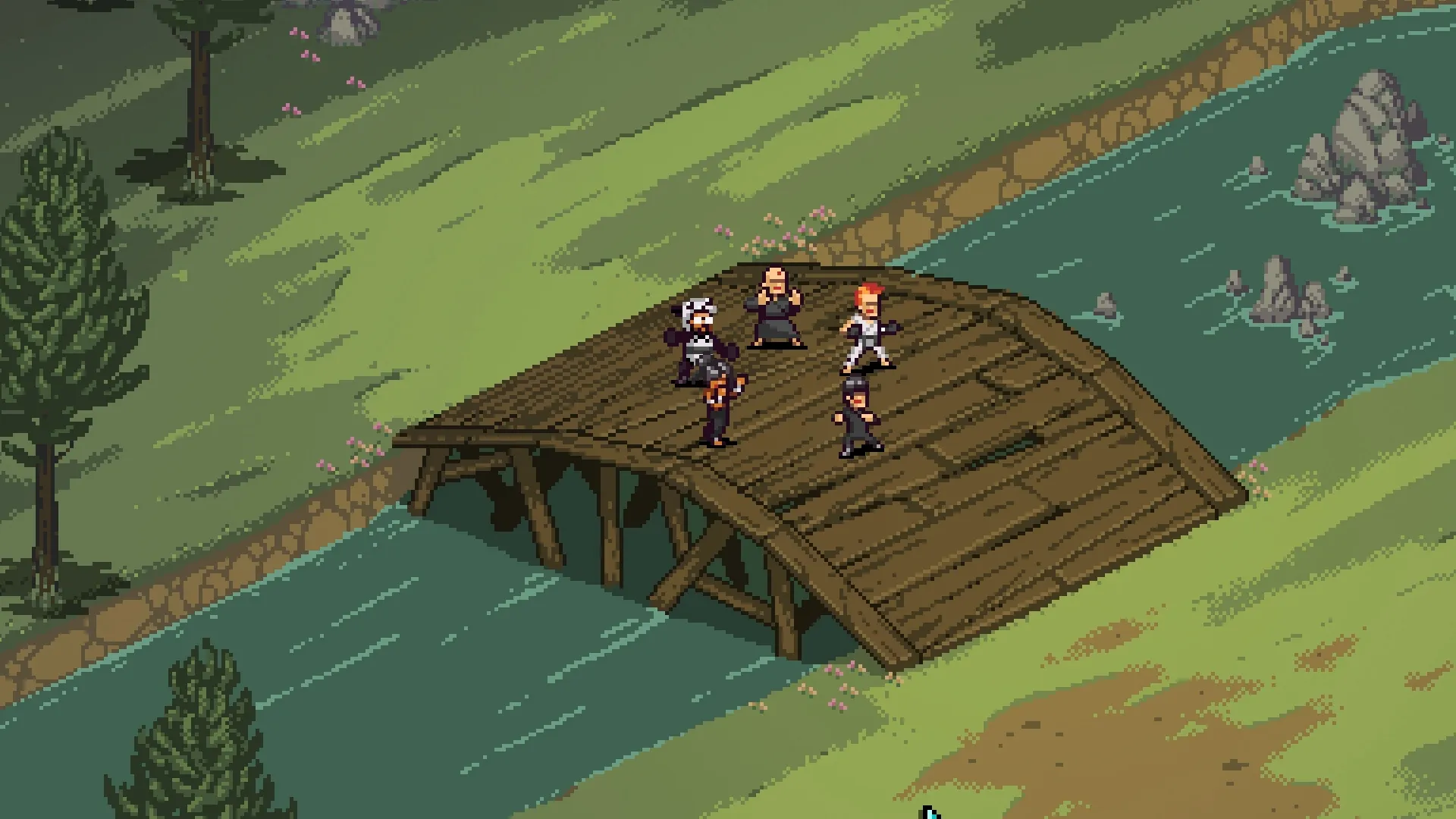
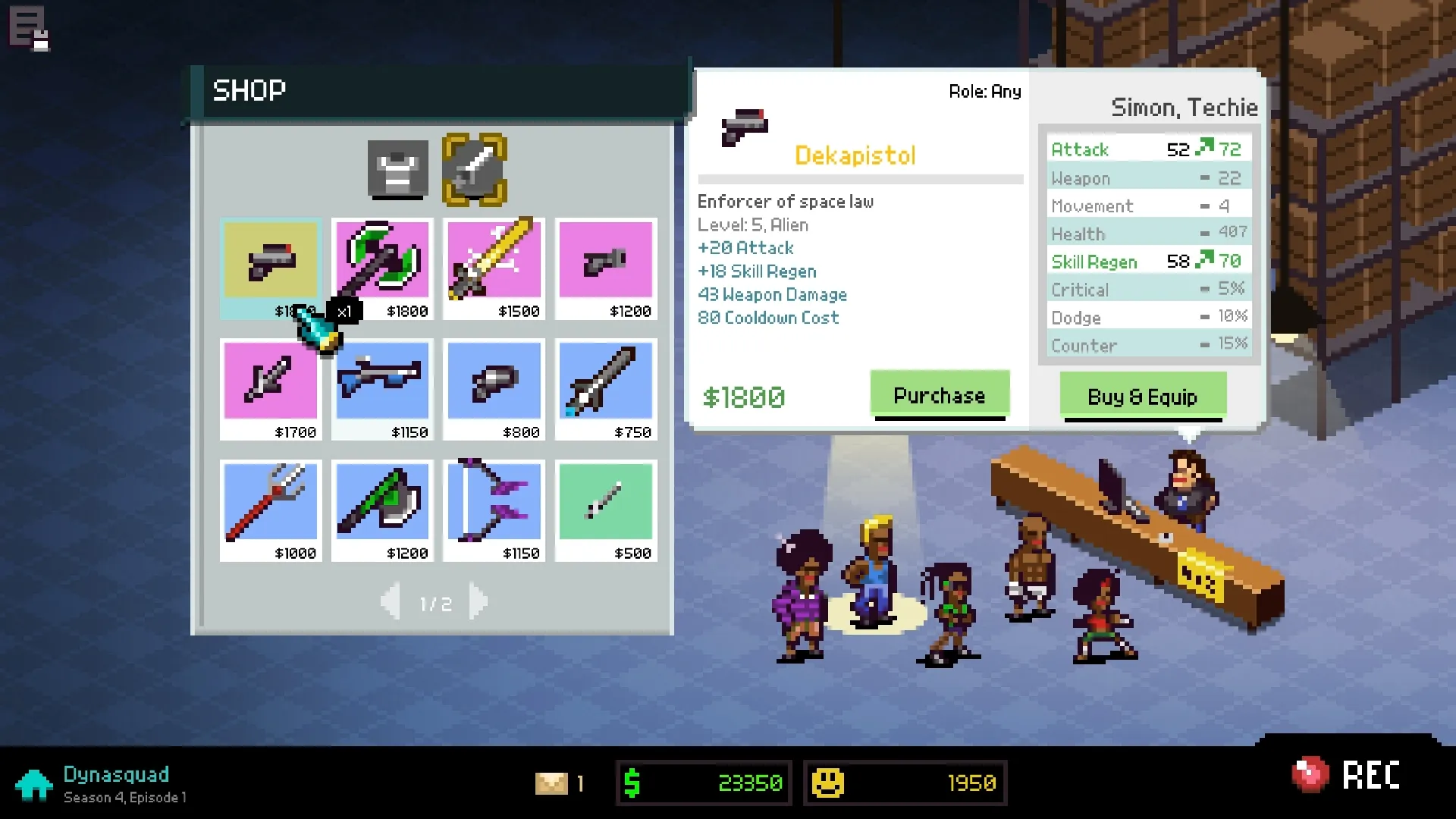
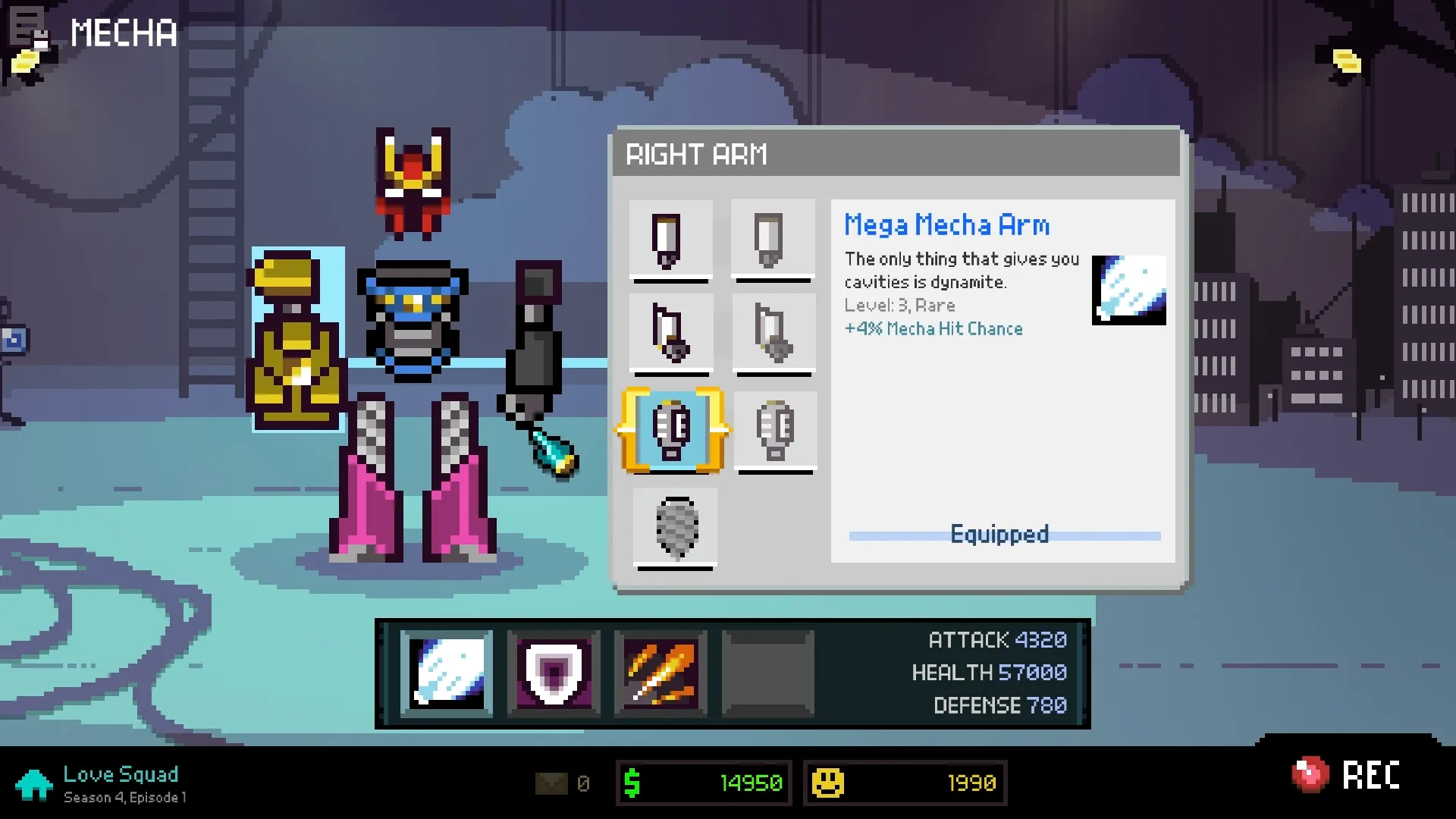
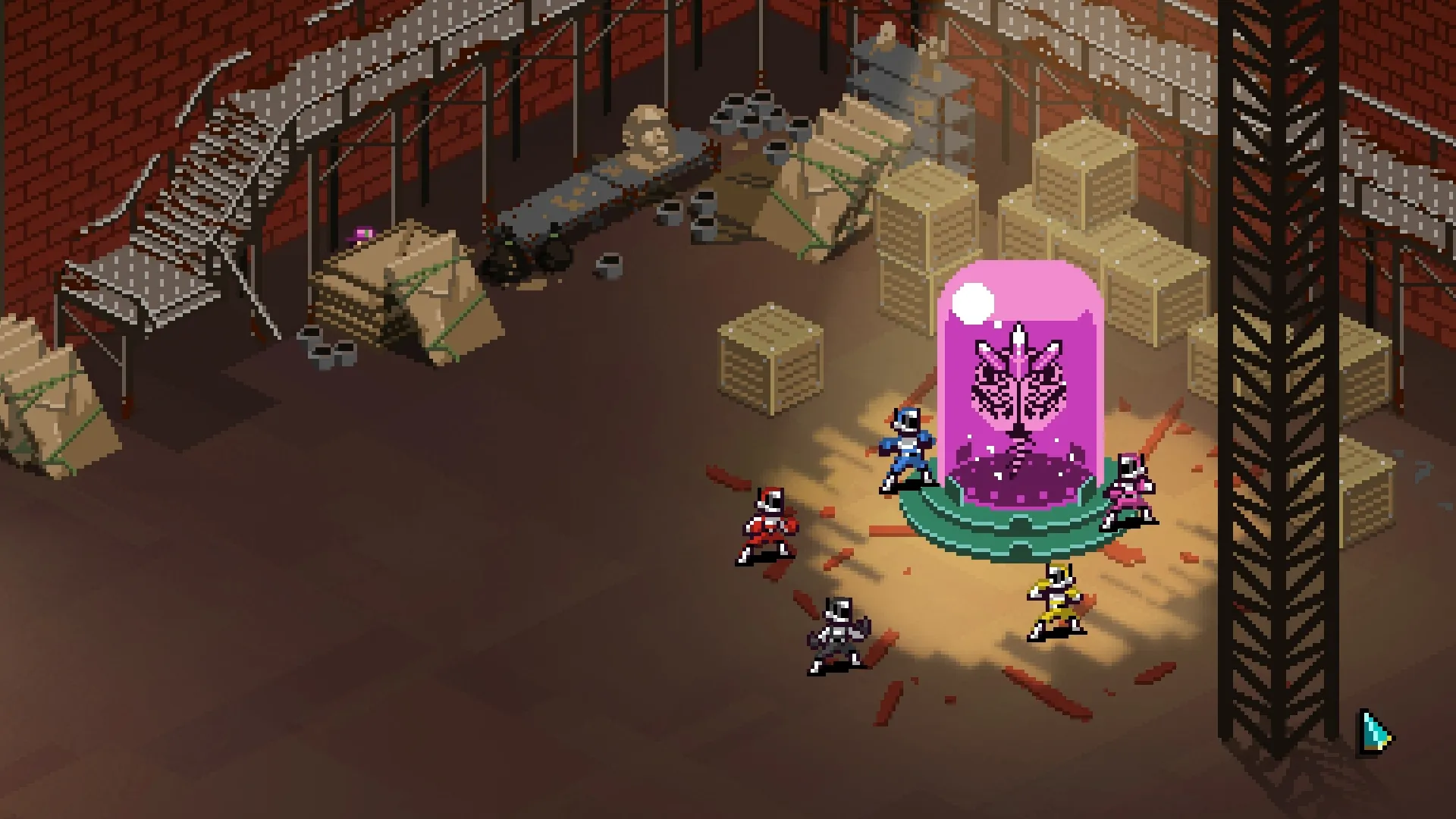
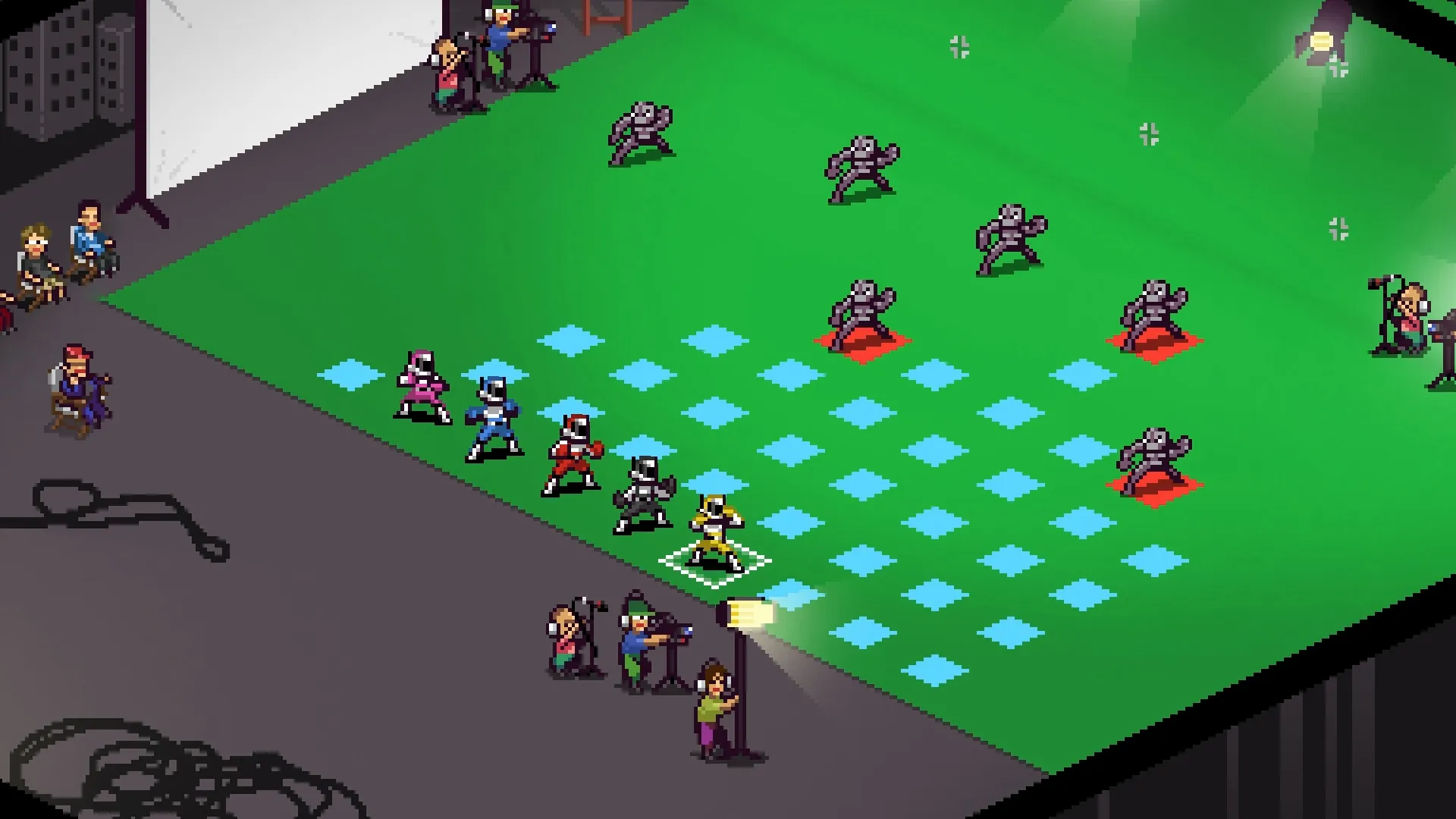

Get the Game Informer Print Edition!
Explore your favorite games in premium print format, delivered to your door.
- 10 issues per year
- Only $4.80 per issue
- Full digital magazine archive access
- Since 1991
